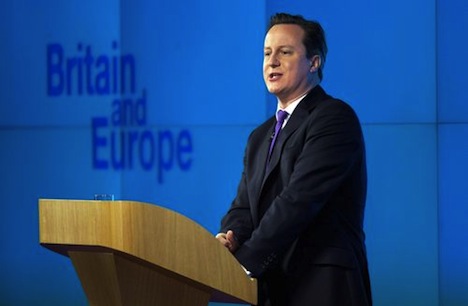This morning, Michael Geary and I argue at the Brussels-based E!Sharp for a new way to think about the United Kingdom’s relationship with the European Union.![]()
![]()
Amid all of the discussion of British prime minister David Cameron’s plan to renegotiate certain opt-outs (on immigration or justice, perhaps) from the rest of the European Union and to hold an ‘in-or-out’ referendum if he wins reelection in May 2015, the question is typically framed as ‘should Britain stay in the European Union?’
But on the basis of 40 years of British membership in the European Union, it seems clearer that the United Kingdom has already left the European Union in a meaningful sense, and even when it entered what was then the European Economic Community, it was never incredibly keen with the concept of ever closer union.
Alternatively, policymakers should concede the reality of British reluctance for more cooperation and frame the question in terms of whether the British should seek an informal separation or a formal divorce:
But as European citizens ponder the consequences of whether the British people will vote to end what’s been a dysfunctional four-decade relationship with the European Union, the question of whether Britain is going to leave the EU has become redundant — Britain, in many ways, has been leaving the Union since virtually the day it became a member. Accordingly, the real question for British and Europe is whether the British will opt for a separation or for a divorce. We argue that separation, a detailed membership renegotiation, is the better option for both sides rather than a complete exit….
[With] British public opinion increasingly inclined to leave the European Union, it is even more important to frame the question of Britain’s relationship with Europe in realistic terms, however difficult that may be to accept. While the terms of separation of British association with many core aspects of the European Union may be difficult for European leaders to stomach, it may be the best alternative to a more formal divorce that seems likely to happen if policymakers in London, Brussels and Berlin continue to deny the reality that British-EU relations will never be — and never have been — amorous.
